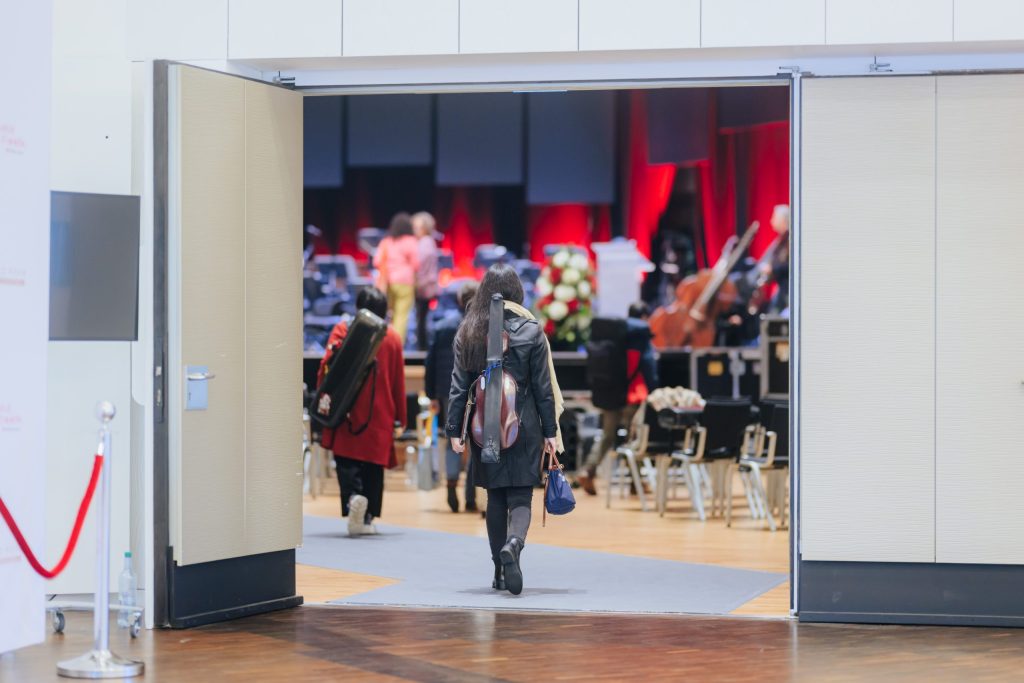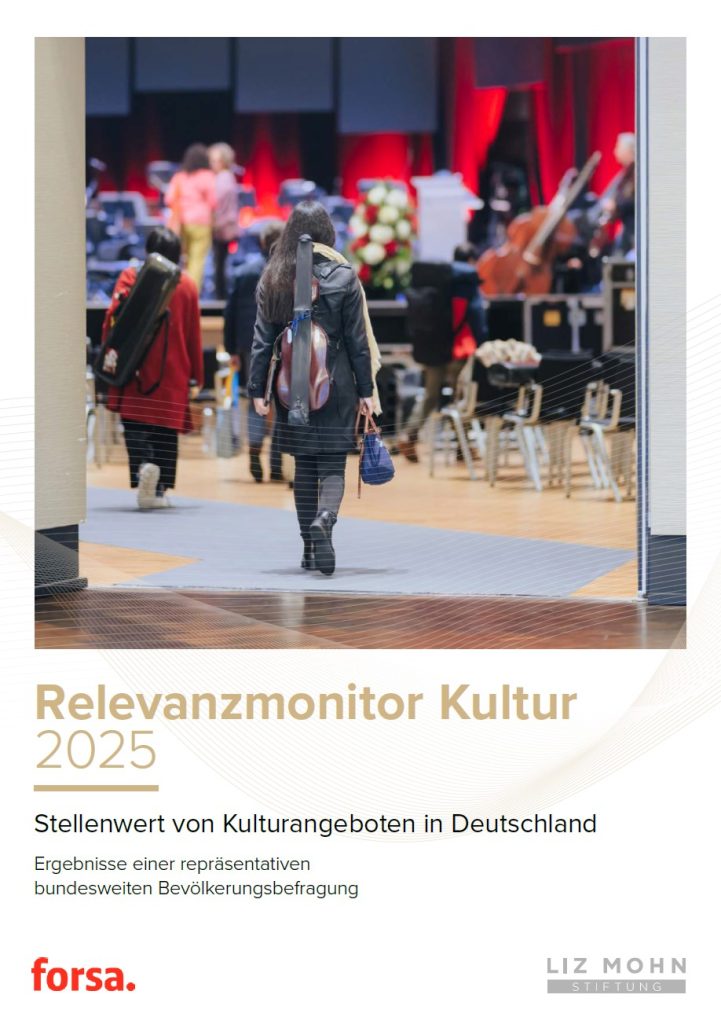Despite multiple crises, support for state funding of culture remains high. Around two thirds (64%) of the respondents consider culture to be just as worthy of support as other public areas. The results of the representative study in collaboration with the opinion research institute forsa emphasize this: A diverse cultural offering is essential to strengthen social dialog. “Culture brings people together and builds bridges of understanding. Cultural offerings enable new perspectives on social issues and social cohesion. Our current Cultural Relevance Monitor confirms this in an impressive way. Young people wish for attractive cultural offerings that incorporate their life realities to a greater extent,” explains Liz Mohn, founder and Chairwoman of the Board of the Liz Mohn Foundation.
A 90% majority of the population also considers culture to be a unifying element in a diverse society. It enables valuable community experiences (92%) and encourages both independent opinion-forming and critical thinking (81% each).
Culture as a key location factor
In 2023, the Relevance Monitor already revealed that culture is perceived as a source of identity and important for social cohesion by a large majority. According to the new study, nine out of ten respondents once again stated that culture connects people across social and political boundaries. Furthermore, a large majority of the population believes culture to be one of the most important social constants in times of crisis, regardless of whether it is in the face of economic uncertainty, growing social polarization or geopolitical tensions.
In addition to its social relevance, culture also plays a significant role in the attractiveness of a place of residence: six out of ten respondents see a diverse range of cultural activities as a key factor in quality of life. In large cities and in more rural areas, the offer is perceived very differently.
Young people wish for attractive cultural formats
Two thirds of the respondents stated that culture provides them with insights into social issues which are not covered in the traditional news. Particularly young adults under 30 value culture as a source of inspiration and a creative space for reflection, opening new perspectives. They are looking for low-threshold, experimental formats which take greater account of the reality of their lives – for example, events in a relaxed atmosphere.
At the same time, there is a need for easier access to information on interesting cultural offerings for young people. They increasingly demand cultural institutions to address and actively shape social debates. This opens further perspectives “The results of the Relevance Monitor impressively show that culture is perceived as a central component of a functioning democracy. However, for culture to continue to fulfill this role, it must be ensured that cultural offerings reach all people – regardless of their age, place of residence, income or previous connection to culture,” explains Dorothea Gregor, cultural expert at the Liz Mohn Foundation.
The urban-rural divide remains a challenge
While people in large cities generally benefit from a wide range of cultural offerings, access in rural regions remains much more limited. In urban centers, almost nine out of ten people rate their cultural offerings as good, whereas in smaller communities, only five out of ten – a solid half – do so. This discrepancy is also reflected in the actual use of cultural offerings: Attendance at theaters, concerts or other events is significantly higher in urban areas than in rural areas.
Recommendations for action to strengthen culture as a societal factor
To further strengthen culture in Germany as a force promoting democracy and to secure its social relevance in the long term, the following measures should be prioritized:
- Use culture as a “democracy laboratory”: Cultural institutions should be promoted even more strongly as places for social debate and the communication of values, while existing structures should be maintained and further developed.
- Improve access to culture: Policymakers and sponsors of cultural institutions should create low threshold offers and formats that are more inclusive, especially of young people and low-income groups. At the same time, there needs to be better access to information about cultural offerings for specific target groups.
- Expand cultural education: It is recommended to reintegrate culture more intensively as a component of school and university education in order to convey the importance of cultural participation at an early stage.
- Develop more attractive cultural formats: Funded cultural institutions should establish participatory, everyday events and programs which better reflect the reality of life for the younger generation and thus offer them easier access to the offerings.
- Reduce the urban-rural divide: Cultural offerings in rural regions must be expanded in a targeted manner, e.g. through mobile cultural formats or new forms of cooperation.
- Commitment to cultural funding: Cross-party funding for culture plays an essential role in securing the long-term diversity of cultural offerings and structures. Political decision-makers need to guarantee reliable and stable support for culture across legislative periods, as it represents a central pillar of social cohesion.
All results of the study will be presented and discussed on April 7th at the Akademie der Künste Berlin. Interested press representatives can register for this event at presse@adk.de. Further information can be accessed here.


